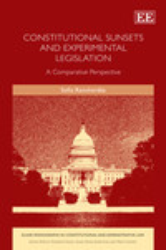
Feb. 17, 2015
Translated Summaries : 05. Energie

In regulatory law, municipalities are very important, as consumers but also as issuers standards. They can do this through contracts but also by unilateral standards such orders.
This power of municipalities is coming to a halt by the decision taken 17 February 2015 by the Supreme Court of the State of Ohio,, State of Ohio ex rel. Jack Morrison Jr., Law Director for City of Munroe Falls, Ohio v. Beck Energy Corp.
Indeed, a municipal law had made provisions for imposing rules on location, drilling and well operations and gas. These provisions were contrary to the law of the State of Ohio.
In its judgment of 17 February 2015, the state Supreme Court considers that this is enough to make the first non-compliant text of the Constitution because it is not possible for a local authority to exercise normative power by contradicting a state standard.
The stakes are certainly legal and lies in the implementation of the hierarchy of norms. But it is also political: in energy, due to the power of the operators, which is most likely not to be captured by the sector? The political power of the state or the political power of municipalities?
As suggested by one of the judges, must be taken into consideration which of the two powers depends most operators in the financing of campaigns.
Factual and determinant consideration, specific element of the US, an element which Kelsen couldn't think .....
Jan. 21, 2015
Thesaurus : Doctrine

Complete reference : Ranchordàs, S., Constitutional Sunsets and Experimental Legislation. A comparative Perspective, coll. "Elgar Monographs in Constitutional and Administrative Law Series", U.K., Edward Elgar, 2015.
Jan. 21, 2015
Breaking news

Just released the book of Sofia Ranchordiàs, Constitutional Sunsets and Experimental Legislation. This topic is particularly important in regulatory systems where this method is used very often.
As soon as Legislation is case management, it becomes a matter of time, good timing, and efficiency.
Because the figure of the Law has changed its terms should change. The most appropriate law then appears the "experimental law", the "trial law." This ephemeral legislation as regulatory bodies promote, can claim to be part of the future only if it has "successful". Operators must be good students if they want to conserve the Law!footnote-14.
Thus, the law is only a draft and it is its success that allows the standard access to the status that was natural: the Act that applies to the future.
These precarious laws that certains authors and regulatory bodies present as the right model, challenge the constitutional principles, the Constitution itself being the supreme law governing the future.
This book shows the extent to which notions of efficiency, testing, flexibility, can attack the very idea of Parliament Law and Constitution. It is true that in regulatory systems everything becomes simple regulations, including laws but it is also true that constitutional courts are restive to admit "experimental laws".
Cet ouvrage montre jusqu'à quel point les notions d'efficacité, de test, de flexibilité, peuvent attaquer l'idée même de Loi et de Constitution. Il est vrai qu'en Régulation, tout ne deviendrait que réglementation, y compris la loi et il est vrai que les cours constitutionnelles sont rétives à admettre les "lois expérimentales".
Updated: Sept. 25, 2012 (Initial publication: July 15, 2012)
Sectorial Analysis

ENGLISH
In Belgium, the Flemish Region had adopted the Decree of 23 December 2010 to exemp those providing electricity with a renewable source to pay the rate of injection into the electricity transmission network. The Region stated that it was not an act tariff, thus falling under its jurisdiction. The decree, attacked by the energy regulator before the Belgium Constitutional Court, was canceled by the latter in a ruling dated July 12, 2012, because it is an act of pricing, under the only federal competence.
FRENCH
En Belgique, la Région flamande avait adopté le décret du 23 décembre 2010 pour exempter les producteurs d'électricité ayant pour source une énergie renouvelable du payement dû au titre de l'injection de l'électricité dans le réseau de distribution. La Région posait qu'il ne s'agit pas d'un acte de tarification, et que cela relevait donc de sa compétence régionnale. Ce décret, attaché par le Régulateur de l'Energie devant la Cour Constitutionnelle de Belgique, a été annulé par celle-ci dans une décision en date du 12 juillet 2012, parce qu'il s'agit bien d'un acte touchant à la tarification, pour laquelle seul des organes fédéraux sont compétents.
Updated: June 4, 2012 (Initial publication: June 4, 2012)
Contributions

Updated: May 23, 2012 (Initial publication: May 23, 2012)
Thesaurus : 01.1.Déclaration des droits de l'homme et du citoyen, 1789

Updated: Jan. 25, 2012 (Initial publication: Jan. 25, 2012)
Thesaurus : Doctrine

Updated: Jan. 10, 2012 (Initial publication: Jan. 10, 2012)
Thesaurus : Doctrine
Updated: Jan. 3, 2012 (Initial publication: Jan. 2, 2012)
Contributions

Updated: Dec. 21, 2011 (Initial publication: Nov. 17, 2011)
Contributions

Updated: Dec. 5, 2011 (Initial publication: Dec. 5, 2011)
Thesaurus : Doctrine
